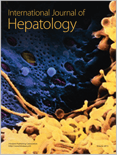
JOURNAL OF VIRAL HEPATITIS
Scope & Guideline
Leading the charge in hepatitis research and innovation.
Introduction
Aims and Scopes
- Epidemiological Studies:
Research examining the prevalence, incidence, and risk factors associated with hepatitis B, C, D, and E across various populations, including vulnerable groups such as people who inject drugs (PWID) and immigrants. - Clinical Management and Treatment Outcomes:
Studies focused on the efficacy and safety of antiviral therapies, including direct-acting antivirals (DAAs) for hepatitis C and nucleos(t)ide analogues for hepatitis B, along with their impact on quality of life and long-term health outcomes. - Public Health Interventions:
Research evaluating screening strategies, linkage to care programs, and community-based interventions aimed at improving hepatitis prevention, diagnosis, and treatment uptake. - Molecular and Immunological Insights:
Investigation into the virology of hepatitis viruses, including genetic mutations, immune responses, and biomarkers associated with disease progression and treatment response. - Socioeconomic and Behavioral Factors:
Studies exploring the social determinants of health, stigma, and patient-reported outcomes that affect access to care and treatment adherence in various populations. - Emerging Topics in Hepatitis Research:
Emerging areas of research include the impact of co-infections (e.g., HIV), the role of gut microbiota in hepatitis progression, and the effects of public health crises like COVID-19 on hepatitis care.
Trending and Emerging
- Integrated Care Approaches:
There is an increasing focus on integrated care models that combine treatment for hepatitis with other health issues, particularly in marginalized populations, highlighting the need for holistic health strategies. - Telemedicine and Remote Care:
The rise of telehealth solutions for hepatitis treatment, especially during the COVID-19 pandemic, showcases the adaptation of healthcare delivery systems to improve patient access and adherence. - Impact of COVID-19 on Hepatitis Care:
Studies examining how the COVID-19 pandemic has disrupted hepatitis screening, treatment, and patient outcomes have become increasingly prevalent, emphasizing the need for resilient healthcare systems. - Co-infection Research:
There is a growing interest in understanding the interactions between hepatitis viruses and other infections, such as HIV, which affect treatment outcomes and patient management. - Patient-Centered Research:
Research focusing on patient-reported outcomes, experiences, and preferences is gaining traction, aiming to align hepatitis care with patients' needs and improve quality of life. - Health Equity and Access to Care:
Emerging themes also include addressing health disparities and improving access to hepatitis care among underserved populations, reflecting a shift towards more equitable healthcare practices.
Declining or Waning
- Hepatitis A Research:
There has been a noticeable decrease in studies specifically focusing on hepatitis A, indicating a reduced emphasis on acute viral hepatitis compared to chronic infections. - Traditional Epidemiological Models:
The reliance on conventional epidemiological models has diminished as newer methodologies and technologies for data collection and analysis emerge, reflecting a shift towards more innovative approaches. - Historical Perspectives on Hepatitis:
Research focusing on historical trends and perspectives of hepatitis infections appears to be waning, with a stronger emphasis on current and future challenges in hepatitis management. - Basic Science of Hepatitis Viruses:
There seems to be a decline in purely basic science research focusing on the fundamental biology of hepatitis viruses, with more emphasis placed on translational and clinical research. - Hepatitis E Studies:
The frequency of studies dedicated to hepatitis E has decreased, potentially reflecting a shift in focus towards more prevalent and impactful hepatitis viruses like B and C.
Similar Journals

Journal of Clinical Virology Plus
Shaping the future of virology with cutting-edge findings.The Journal of Clinical Virology Plus, published by Elsevier, is an essential resource for researchers and professionals in the fields of virology and infectious diseases. Launched in 2021, this journal aims to bridge the gap between clinical research and application, fostering a deeper understanding of viral pathogenesis, diagnostics, and therapeutic strategies. With an ISSN of 2667-0380, this open-access journal brings cutting-edge findings to the global scientific community, facilitating the rapid dissemination of knowledge critical for advancing public health. Positioned in the Q3 category for both Infectious Diseases and Virology in 2023, its ranking reflects its growing influence and relevance in the academic landscape. The journal strives to support innovative research, collaborative studies, and comprehensive reviews that address contemporary challenges in clinical virology. As it converges through the years from 2021 to 2024, Journal of Clinical Virology Plus aims to be a central hub for vital discussions and breakthroughs in this dynamic field.

Advances in Virology
Exploring the Frontiers of Infectious DiseasesAdvances in Virology, an esteemed journal published by HINDAWI LTD, serves as a pivotal platform for cutting-edge research in the field of virology and infectious diseases. With its ISSN 1687-8639 and E-ISSN 1687-8647, the journal has been a significant contributor to the scientific community since its initiation as an Open Access resource in 2009, allowing researchers from around the globe to access groundbreaking findings without barriers. Operating out of the United States and recognized for its commitment to high-quality research, the journal's relevance is underscored by its ranking in the Q3 category for Infectious Diseases and Q4 for Virology as of 2023. The time frame of publications spans from 2009 to 2024, reflecting a continuous commitment to exploring the evolving landscape of virology. This journal not only promotes the dissemination of novel insights and methodologies but also fosters collaboration and innovation within the scientific community, making it an invaluable resource for researchers, professionals, and students alike.

Hepatology International
Pioneering discoveries in the realm of hepatology.Hepatology International is a premier academic journal dedicated to advancing the field of liver research and hepatology. Published by SPRINGER, this journal boasts a prestigious Q1 ranking in Hepatology as of 2023, underscoring its commitment to high-quality research dissemination. The journal’s scope encompasses a wide range of topics related to liver disease, including clinical, translational, and basic science studies. With its impact factor reflecting its relevance and influence in the field, Hepatology International serves as an essential resource for researchers, clinicians, and students aiming to keep abreast of the latest developments and breakthroughs. Though traditionally a subscription-based journal, it offers a vast array of insightful articles that contribute significantly to our understanding of hepatological conditions. The journal continues its trajectory of growth since its inception in 2008, anticipating a convergence of knowledge and innovation through to 2024. Located in the heart of New York City, this journal not only represents a crucial platform for global hepatology research but also fosters a collaborative community of experts dedicated to improving liver health worldwide.

Clinical Gastroenterology and Hepatology
Advancing the Frontiers of Gastroenterology and HepatologyClinical Gastroenterology and Hepatology, published by Elsevier Science Inc, stands as a leading journal in the fields of gastroenterology and hepatology. With an ISSN of 1542-3565 and an E-ISSN of 1542-7714, this esteemed publication has earned its place in the top quartile (Q1) of both gastroenterology and hepatology categories as of 2023, ranking 6th out of 167 and 7th out of 82 respectively. The journal aims to disseminate innovative research, clinical studies, and case reports that advance the understanding and treatment of gastrointestinal and liver diseases. Targeted towards researchers, healthcare professionals, and students, it provides crucial insights into emerging therapies and medical advancements. Clinical Gastroenterology and Hepatology is not only a pivotal resource for contemporary gastroenterological research but also fosters collaboration and knowledge-sharing within the medical community. With a converging publication history from 2003 to the present, the journal continues to build on its solid foundation of scientific excellence and relevance.

International Journal of Hepatology
Empowering global knowledge in liver health.The International Journal of Hepatology, published by HINDAWI LTD, is a premier open-access journal dedicated to the field of hepatology. Since its inception, this journal has championed the dissemination of cutting-edge research and reviews pertaining to liver health, diseases, and therapies. With an ISSN of 2090-3448, the journal has been committed to open-access publishing since 2011, ensuring that vital knowledge is readily available to researchers, clinicians, and students worldwide. Based in Egypt, this journal stands out in its category, achieving a Q3 ranking in 2023 within the scope of Hepatology by Scopus, which ranks it #43 out of 82 in the field. The International Journal of Hepatology offers a platform for significant findings and discussions that influence clinical practices and foster new research directions, thus playing a crucial role in advancing the understanding of liver diseases and their management.

Viral Hepatit Dergisi-Viral Hepatitis Journal
Fostering collaboration for impactful discoveries.Viral Hepatit Dergisi - Viral Hepatitis Journal, published by GALENOS PUBL HOUSE, is a preeminent journal dedicated to advancing the field of viral hepatitis research. With an ISSN of 1307-9441 and an E-ISSN of 2147-2939, it serves as a vital platform for the dissemination of cutting-edge studies and clinical findings related to the prevention, diagnosis, and treatment of viral hepatitis. The journal aims to foster collaboration among researchers, medical professionals, and students by providing open access to high-quality research articles and reviews. Although specific impact metrics such as H-Index are not detailed, the journal is well-regarded in its field, contributing significantly to the understanding of viral hepatitis and its global implications. Positioned in Istanbul, Turkey, it draws upon a rich academic tradition, ensuring comprehensive coverage of the subject. This journal is indispensable for anyone invested in the fight against viral hepatitis, enriching the scholarly literature while promoting informed practices in healthcare.

Hepatitis Monthly
Unveiling breakthroughs in hepatitis management.Hepatitis Monthly, published by BRIEFLAND in the Netherlands, is a pivotal journal in the fields of hepatology and infectious diseases. Established in 2007, it continues to make significant contributions to the understanding and management of hepatitis and related viral infections with a publication timeline extending through to 2024. Aiming to disseminate high-quality research, the journal serves as a forum for groundbreaking studies and innovations essential for healthcare professionals, researchers, and students alike. While it currently holds Q4 rankings in both hepatology and infectious disease categories, its ongoing commitment to addressing pressing health issues makes it an important resource in the academic community. Although it operates under a traditional access model, Hepatitis Monthly not only publishes original research articles, reviews, and case studies but also encourages the exchange of knowledge that helps shape future research directions and clinical practices. As it continues to explore the complexities surrounding viral hepatitis, this journal invites researchers to contribute to its mission of advancing scientific understanding and improving patient care.

INFECTION
Uncovering Breakthroughs in Microbiology and MedicineINFECTION is a prestigious journal, published by Springer Heidelberg, that serves as a leading platform for the dissemination of critical research in the fields of Infectious Diseases, Microbiology, and Medicine. With an impressive Q1 ranking in multiple categories such as Infectious Diseases, Medicine (miscellaneous), and Medical Microbiology, the journal is recognized for its high-quality content and impactful contributions to the scientific community, as evidenced by its Scopus rankings placing it in the top 10th percentiles. Since its inception in 1973, and projected to continue until 2024, INFECTION has established itself as a vital resource for researchers, healthcare professionals, and students keen to explore the latest findings and advancements in infectious diseases. The journal provides a rigorous peer-review process, ensuring that only high-quality studies are published, making it an essential read for those seeking to deepen their understanding and stay abreast of the rapidly evolving landscape in infection research.

Canadian Liver Journal
Connecting Scholars, Enhancing Liver Health.Canadian Liver Journal, published by University of Toronto Press Inc., offers a dedicated platform for the dissemination of cutting-edge research in the field of Hepatology. With an E-ISSN of 2561-4444, this journal plays a pivotal role in advancing knowledge related to liver diseases and therapies, currently ranked in the 3rd quartile (Q3) for the 2023 category in Hepatology—a reflection of its growing influence in the biomedical research community. The journal, which has been in circulation since 2018 and sets its sights on contributing valuable insights until 2024, aims to engage researchers, clinicians, and students alike by providing a rigorous peer-reviewed environment for sharing findings, case studies, and reviews pertinent to liver health. Through its commitment to excellence and scholarly impact, the Canadian Liver Journal serves as an essential resource for those dedicated to combating liver diseases and enhancing patient care.

Canadian Journal of Gastroenterology and Hepatology
Advancing Knowledge in Gastroenterology and HepatologyCanadian Journal of Gastroenterology and Hepatology, published by HINDAWI LTD, serves as a vital resource in the fields of gastroenterology and hepatology. Since its inception in 1987, this open-access journal has made significant contributions to advancing research and clinical practice through its comprehensive coverage of topics ranging from liver diseases to gastrointestinal disorders. With an impressive Q2 ranking in Gastroenterology and a Q3 ranking in Hepatology as of 2023, the journal has established itself as an influential platform for researchers and healthcare professionals seeking to disseminate and acquire knowledge. The journal is based in Egypt, with its operational headquarters located in London, England. Notably, it holds a respectable standing in Scopus rankings, placed at Rank #64 in Gastroenterology and Rank #34 in Hepatology, reflecting its impact and relevance in the medical community. With a commitment to quality and accessibility, the Canadian Journal of Gastroenterology and Hepatology continues to foster innovation and collaboration among its readers.